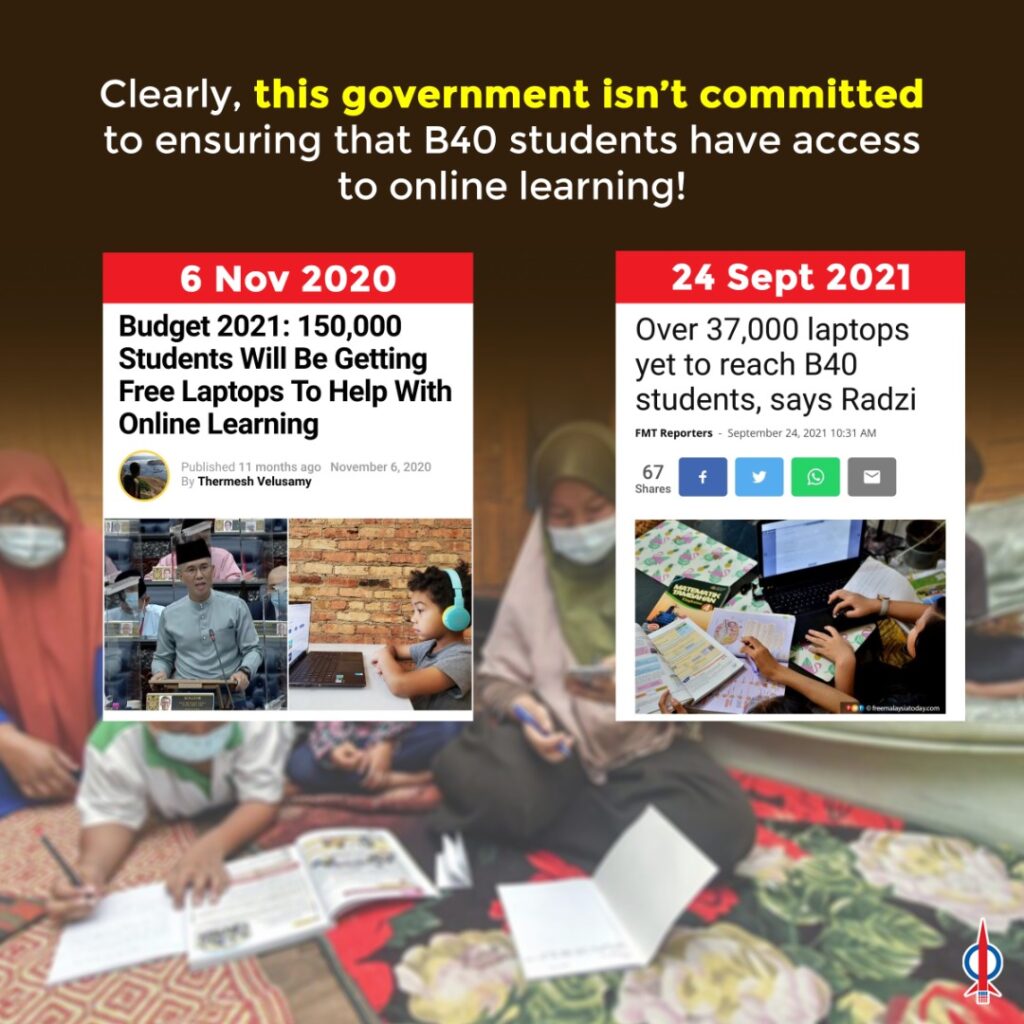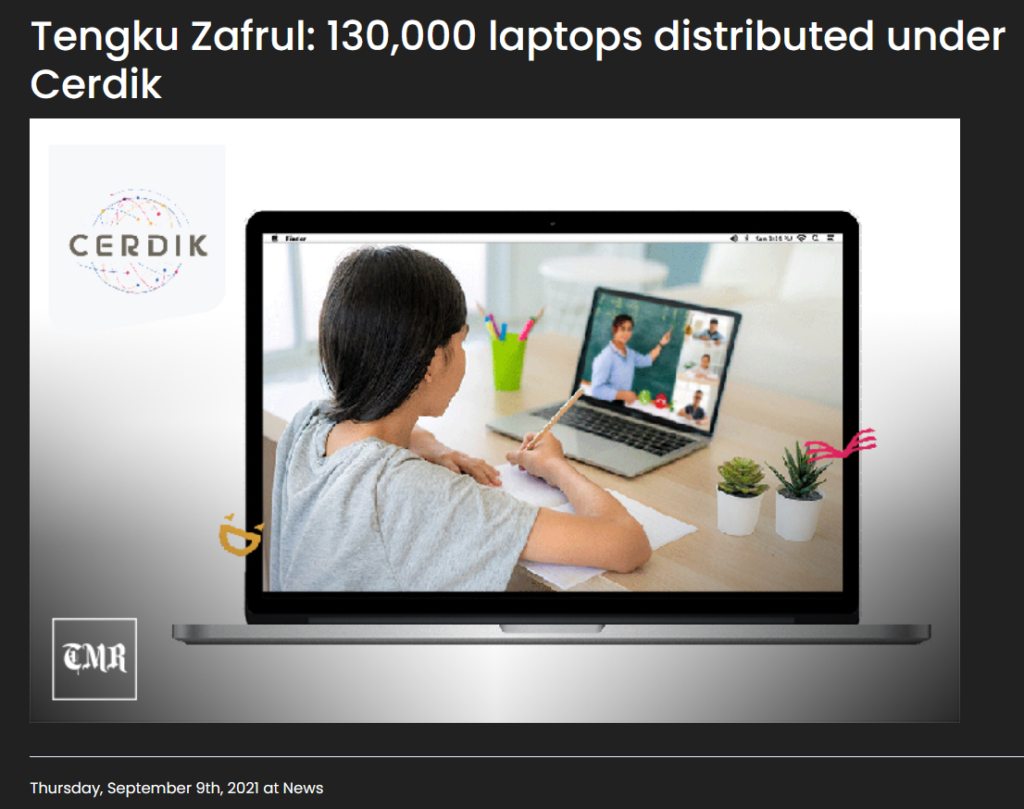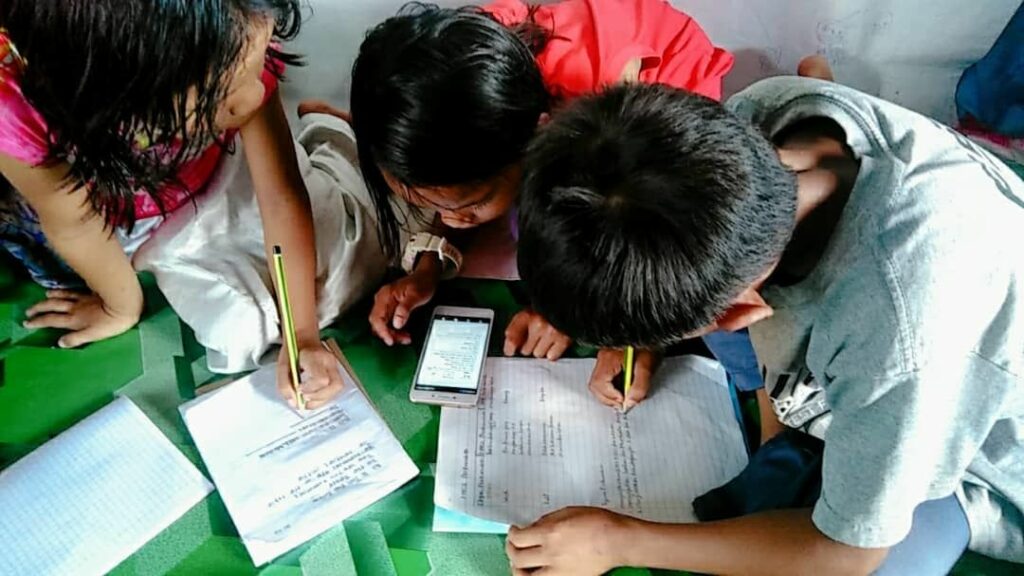
Almost one year has passed since Finance Minister Tengku Zafrul first announced in November 2020 that 150,000 laptops would be distributed to B40 students to aid them with online learning. Yet, a significant number of students still have not received these promised laptops until now.
3 weeks ago on 9 September, Zafrul was reported to have said that 130,000 of the 150,000 laptops have been distributed, meaning a remaining 20,000 units still haven’t reached their intended recipients.

However, on 18 September, Education Minister Radzi Jidin revealed in his Parliamentary reply that only 111,040 laptops have been distributed so far, leaving a total number of 38,960 undistributed laptops. The inconsistency between both ministers’ accounts is most striking. How is it that both the Ministry of Finance and Ministry of Education still haven’t gotten their act together until now?
In Radzi’s Parliamentary reply, he also stated that the ministry had received 15,419 laptops from Yayasan Hasanah but have not distributed them. Further, these laptops will be distributed shortly but there was no commitment to a nearest possible dateline. In addition, he stated that another 23,541 laptops were yet to be received from Yayasan Hasanah.
Even though schools are set to reopen in stages starting October, the government has announced that there will be a rotation system in place which would form an integral part of school operation SOPs. This means that many students will still need a suitable device when they are home to participate in online learning.

According to Member of Parliament for Kulai, Teo Nie Ching, she had repeatedly stated that 150,000 laptops were simply insufficient to address the digital gap or cater to the needs of poor children and families in the B40 category. She emphasised that providing adequate devices should be a government funded initiative, not one that solely relies on contributions by a GLC.

What makes this situation an absolute mockery of good governance is the fact that no one has provided any explanation for this failure – not the Prime Minister, not the Minister of Finance, not the Minister of Education, not Yayasan Hasanah. The public has been left in the dark as to why procuring these laptops is taking so long, what the causes are, or what steps are being taken to mitigate the delay. No explanation, zero accountability.
Further, Nie Ching said that this matter indicates and reflects just how the government of the day prioritises education – as if education and its tools have always taken a back seat and have never been an integral part of pandemic management and moving forward to create a resilient society. It is all just talk with very little action.
To put things into perspective, 37% of Malaysian students either do not have any devices or gadgets for online learning or what devices they do own aren’t suitable. This 37% translates to at least 1.7 million students with inadequate devices, making them more likely to be a segment of society more adversely affected by the pandemic and therefore contributing to the concern of a lost generation.



